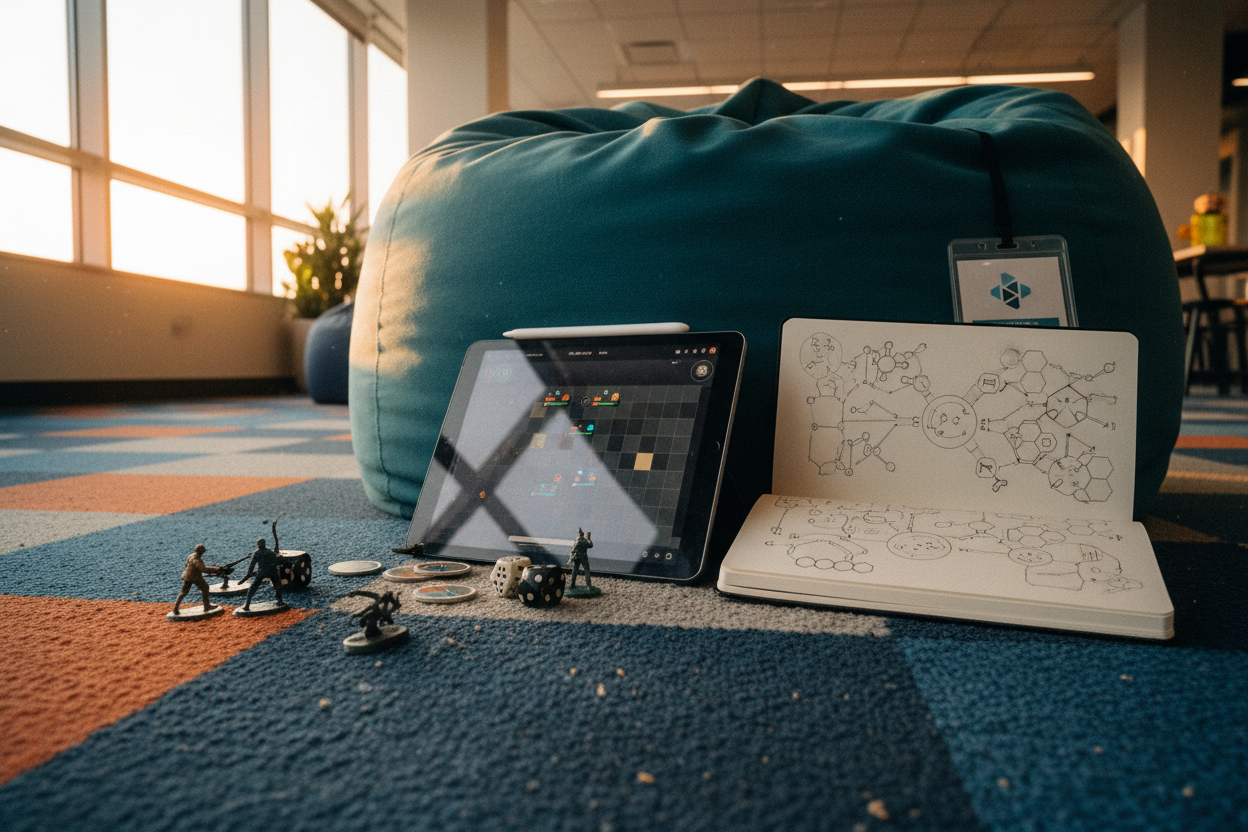How Dojo Engine is Powering the Next Generation of Fully On-Chain Games on Starknet

There’s a seismic shift happening in blockchain gaming, and it’s all unfolding on Starknet. If you’ve been tracking the rise of fully on-chain games, you’ve probably heard the buzz about Dojo Engine. This isn’t just another game framework – it’s the backbone powering a new wave of provable, composable, and truly decentralized games. Let’s break down how Dojo Engine is setting the stage for next-gen on-chain experiences and why developers are flocking to this ecosystem.
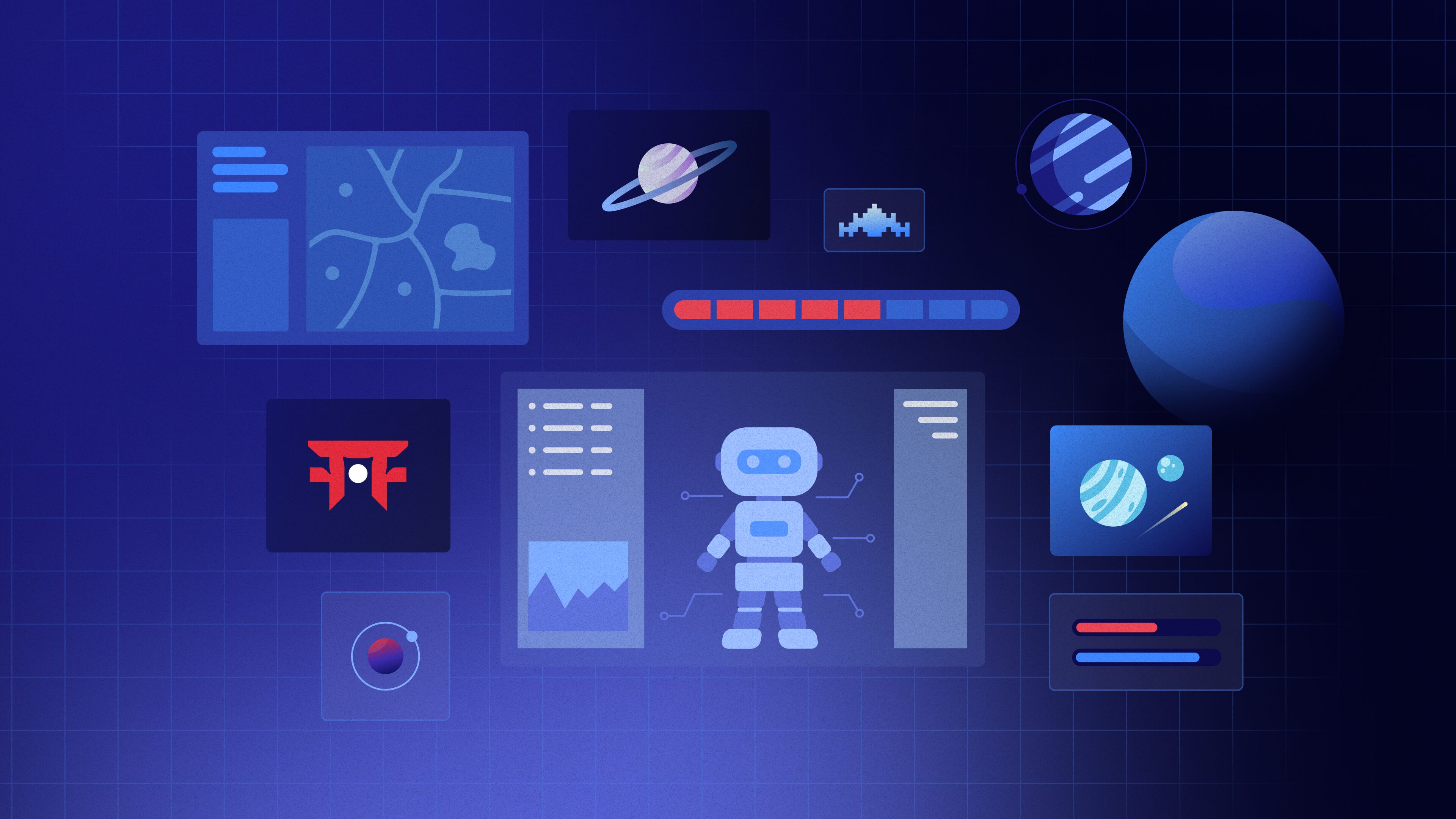
Why Fully On-Chain Games Are the Future
Traditional blockchain games have flirted with decentralization, but most still keep core logic off-chain. That means game outcomes and state can be manipulated or hidden behind closed servers. Enter fully on-chain games: every move, battle, or trade is executed transparently via smart contracts – no smoke, no mirrors.
This level of transparency unlocks true digital ownership and interoperability. Imagine your rare sword from one game seamlessly appearing in another world because both recognize its on-chain existence. That’s not just theory anymore – it’s happening right now thanks to frameworks like Dojo Engine Starknet.
How Dojo Engine Makes On-Chain Development Actually Fun (and Fast)
Let’s get technical for a sec: At its core, Dojo leverages the Entity-Component-System (ECS) architecture. Instead of hardcoding rigid rules, developers build modular systems where data (components) is decoupled from behavior (systems). This means you can rapidly prototype new features or swap out mechanics without rewriting your whole codebase.
But what really sets Dojo apart? Here are some killer features:
- Provable Game Logic: Every action is verifiable on Starknet. No more trust issues – players see every roll of the dice and outcome in real time.
- Composability: Build new mechanics by remixing existing components. Want to add a crafting system or PvP duels? Just plug it in.
- Developer Tooling: Tools like Sozo (CLI), Torii (indexer), and Katana (local dev network) mean you spend less time fighting infrastructure and more time shipping features.
If you’re itching to dive deeper into building your own game with these tools, check out our step-by-step guide at How to Build a Fully On-Chain Game with Dojo.
The Starknet Advantage: Speed Meets Scalability
No matter how slick your engine is, it needs a network that can handle rapid-fire transactions at scale. That’s where Starknet comes in clutch for Dojo-powered games. Built using Cairo – Starknet’s native smart contract language – Dojo delivers both security and throughput that legacy chains just can’t match.
This combo lets devs create multiplayer online worlds where every player action is processed instantly and transparently on-chain. Think turn-based PvP battles in Dojon’t, or multi-game arcades like Starknet-Arcade (Arcadino), all running live without bottlenecks or downtime.
Killer Use Cases: Real Games Live On-Chain Now
The proof is in the projects:
- Dojon’t: Tactical PvP duels where strategy plays out entirely on-chain.
- Starknet-Arcade (Arcadino): Play classics like Coin Flip or Rock Paper Scissors with outcomes verified by smart contracts.
- Dope Wars: A community-driven metaverse inspired by old-school games but powered by transparent DeFi mechanics using Dojo.
If you want to go hands-on with these titles or explore more technical details about their architecture, check our curated developer resources at How to Build Fully On-Chain Games with MUD and Dojo: A Practical Guide for Web3 Developers.
What’s wild is how fast the Dojo ecosystem is evolving. Just look at the latest Starknet Game Jams: dozens of teams are spinning up playable, fully on-chain prototypes in under 72 hours, each pushing the boundaries of what’s possible with provable game logic. The winning projects aren’t just tech demos, they’re real games with active communities and open-source codebases ready for remixing.
Standout Dojo-Powered Games on Starknet
-
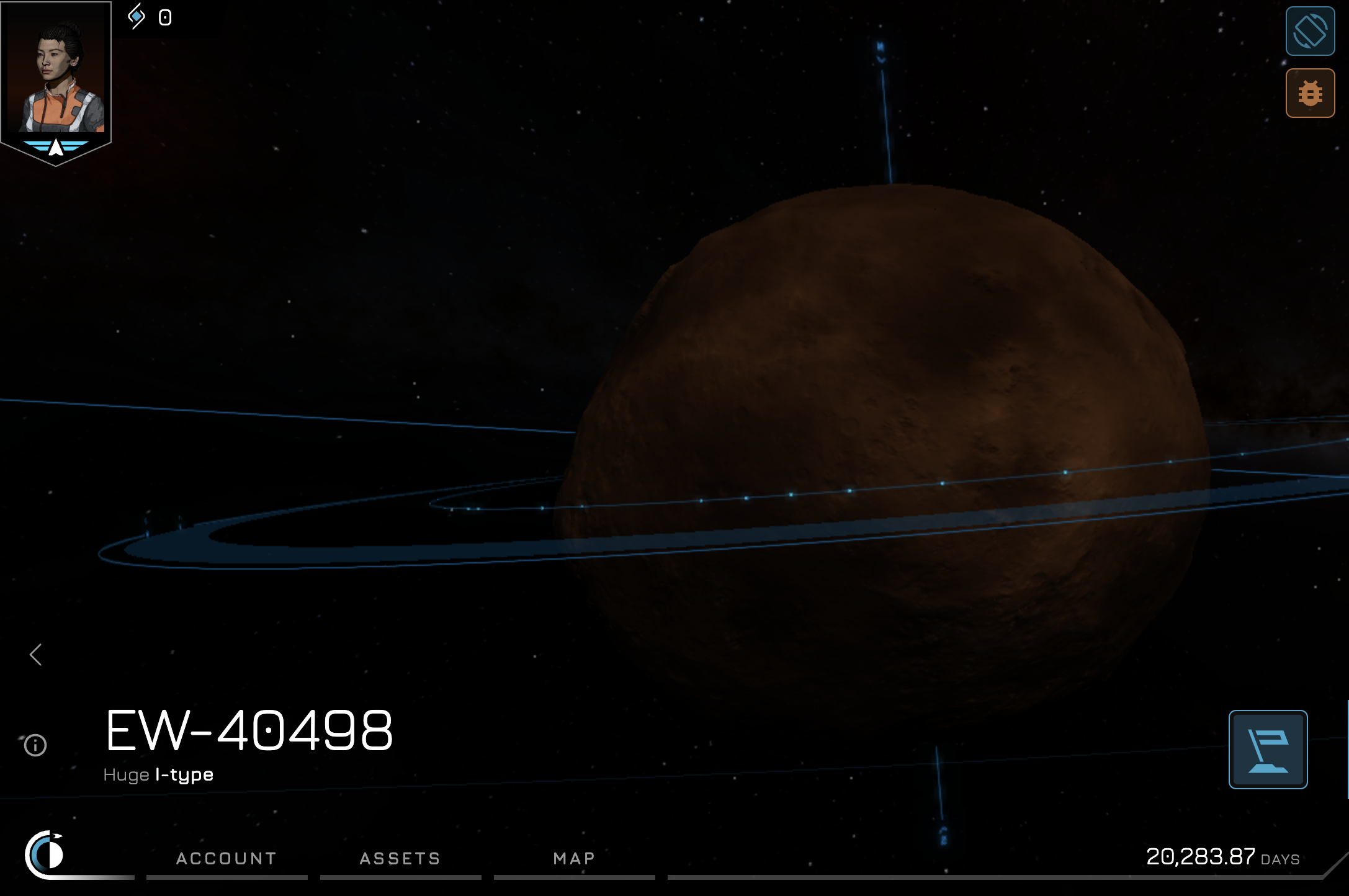
zKnight: The Dojo Game Jam winning project, zKnight is a fully on-chain, multiplayer tactical RPG. Players control knights, strategize in battles, and interact with a provable game world—every move is transparent and verifiable on Starknet.
-
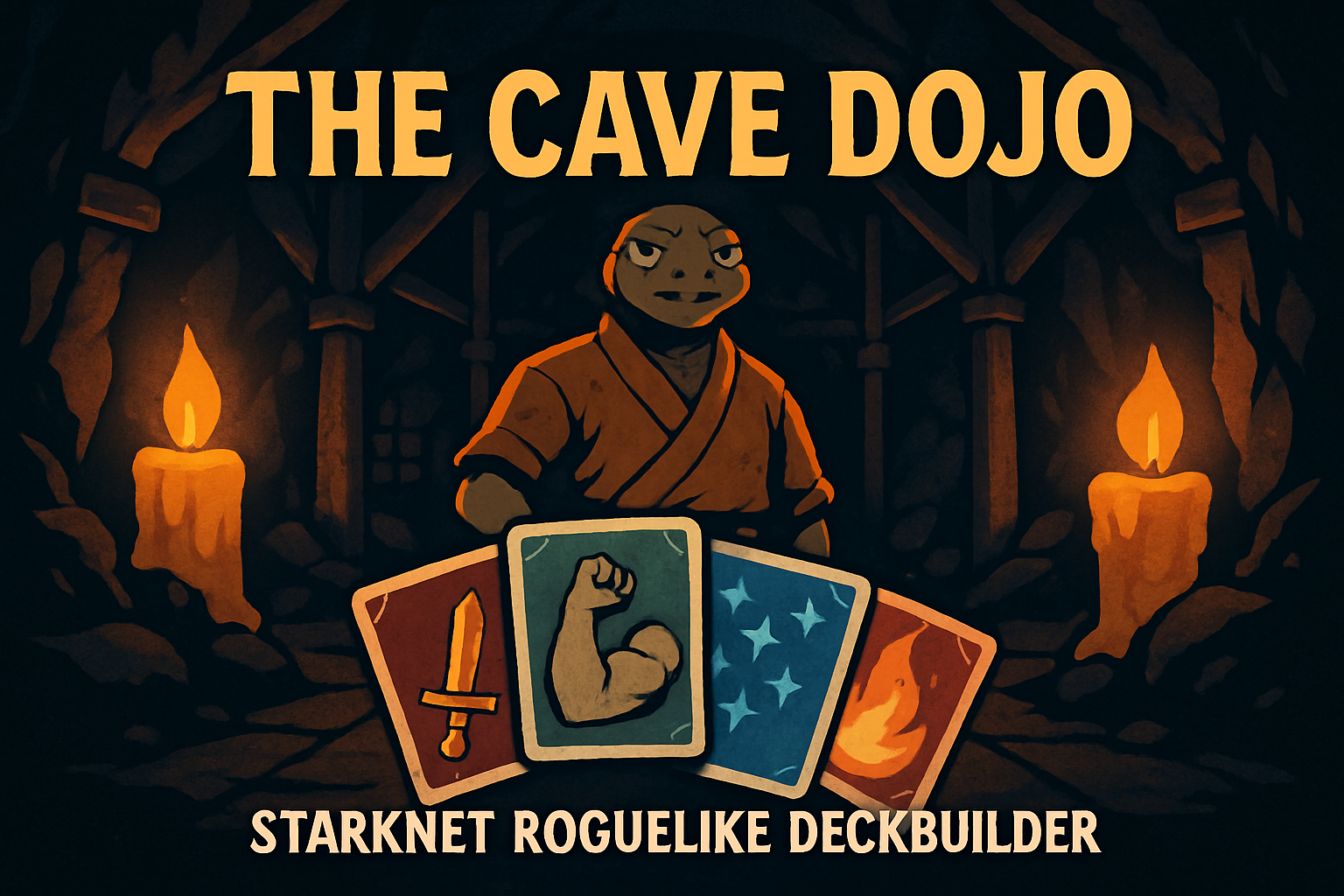
The Cave: Dive into a roguelike deckbuilder adventure with The Cave. Built on Dojo, this game challenges you to venture into procedurally generated dungeons, collect cards, and survive on-chain perma-death mechanics—all recorded on Starknet.
-

StarkLand: StarkLand is a fully on-chain multiplayer online simulation game (FOMOSLG) powered by Dojo. Players build, trade, and collaborate in a persistent world where every action and asset is provably owned and managed on Starknet.
-
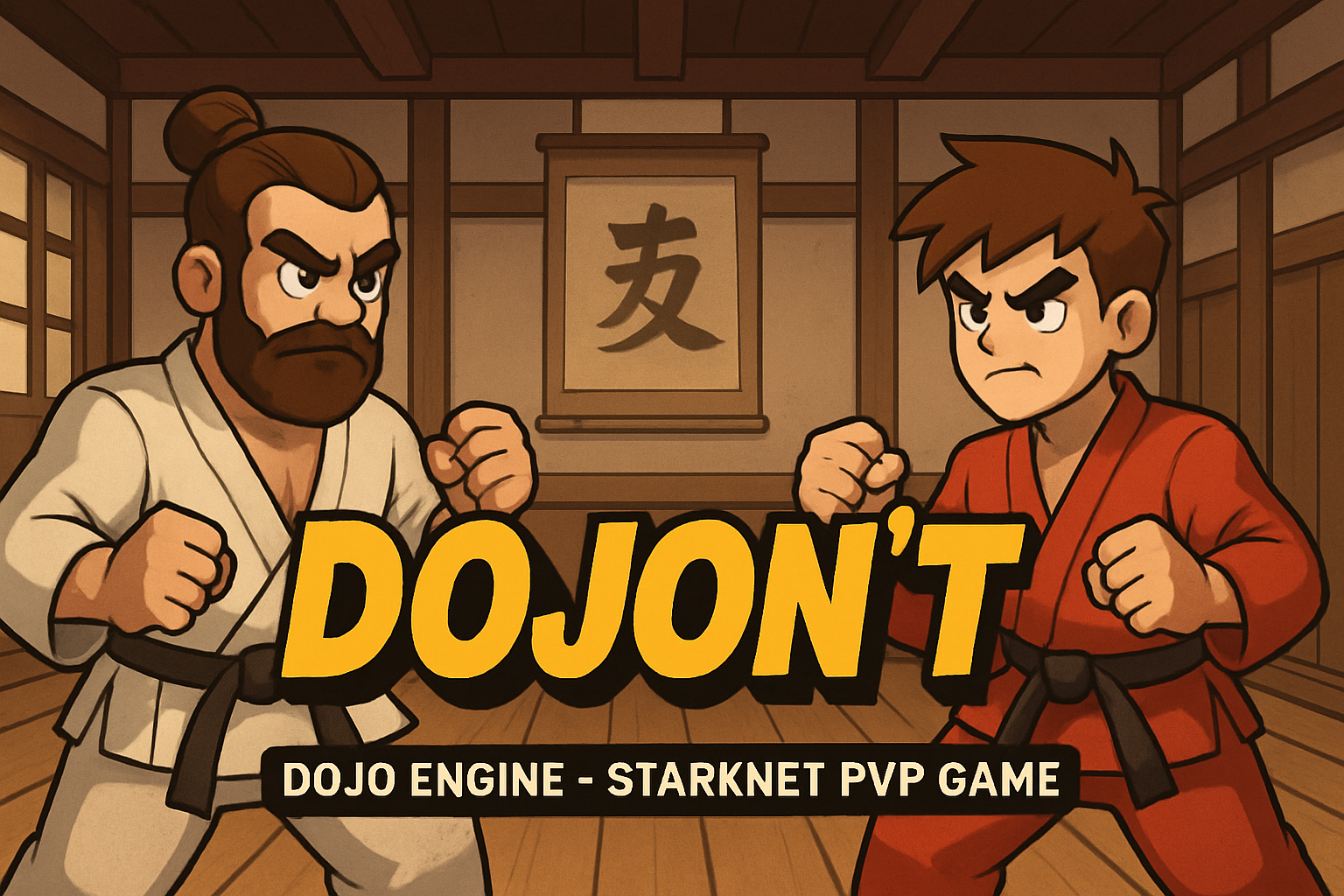
Dojon’t: A turn-based PvP game where two players duel in tactical combat, Dojon’t showcases Dojo’s on-chain logic. Every move, attack, and outcome is executed and verified on Starknet, ensuring fairness and transparency.
-
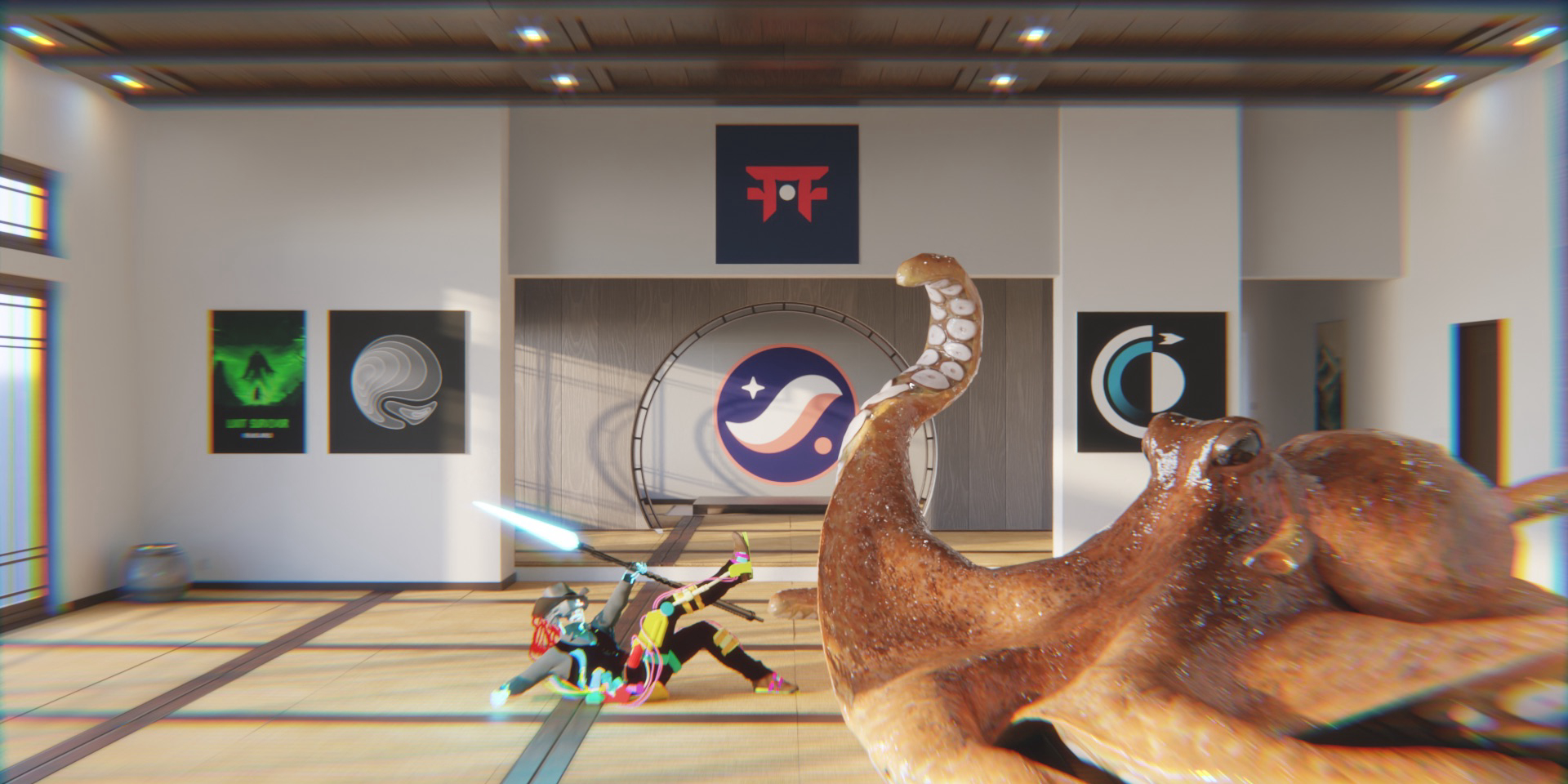
Starknet-Arcade (Arcadino): This fully on-chain arcade brings classic games like Coin Flip, Roulette, Rock Paper Scissors, and Snakes & Ladders to Starknet. Built with Dojo’s ECS architecture, every game is provably fair and transparent.
-
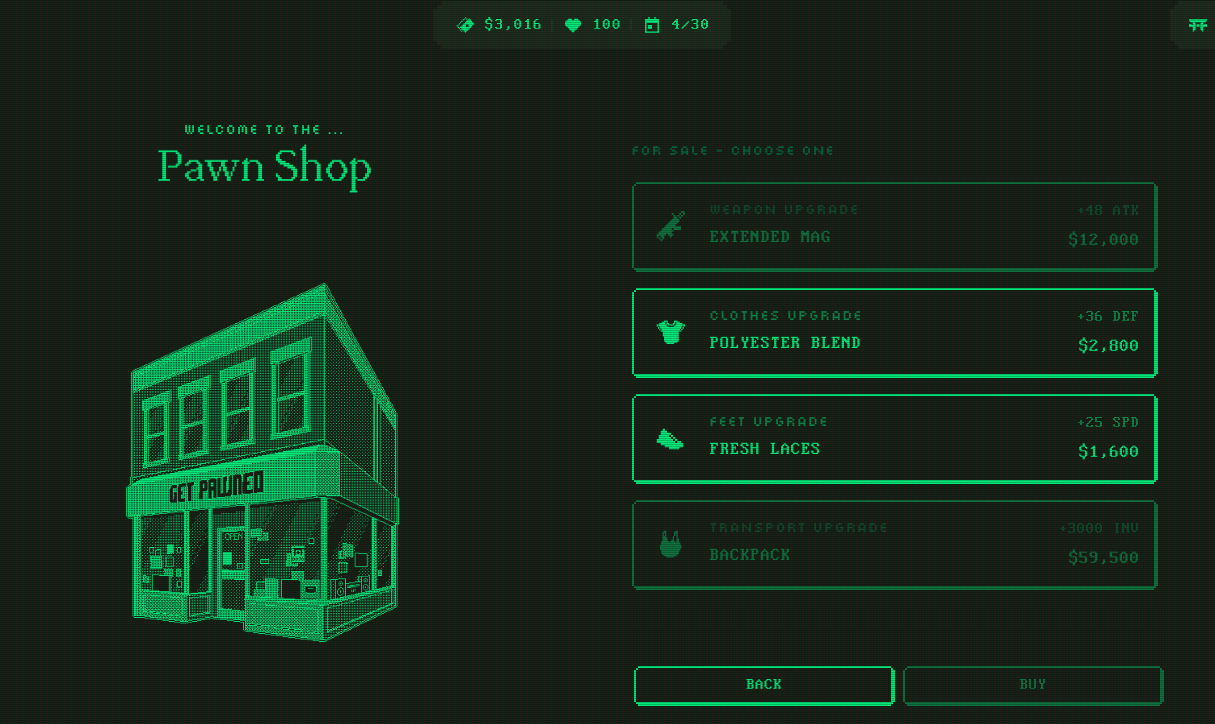
Dope Wars: Inspired by classic simulation games, Dope Wars is a decentralized, community-driven metaverse. Leveraging Dojo Engine, it offers on-chain economies, player-driven stories, and provable ownership—all on Starknet.
This explosion of creativity isn’t by accident. Dojo’s modular design means you don’t have to reinvent multiplayer logic or asset ownership every time you start a new project. Instead, you can fork proven blueprints or plug in new modules from the community. That’s why we’re seeing roguelike deckbuilders like The Cave, massive online simulations like StarkLand, and even experimental PvP formats, all interoperable and composable by default.
Why Developers (and Traders) Should Pay Attention
If you’re a dev looking to break into on-chain game development, Dojo Engine Starknet is basically your cheat code. With Cairo-based smart contracts, robust tooling, and a thriving Discord full of builders sharing tips daily, onboarding has never been smoother. Plus, the open nature of these games means your work is visible, and tradable, by anyone on-chain.
For traders and early adopters? Keep an eye out for ecosystem tokens tied to these projects. As fully on-chain games gain traction and player volume grows, expect increased demand for assets that power in-game economies or governance systems. The composability of Dojo-built worlds opens up fresh trading strategies, think cross-game arbitrage or speculation on rare digital assets that are truly owned by players.
Getting Started: Your Next Steps in On-Chain Gaming
Ready to dive in? Here’s how you can get started:
- Try live games: Jump into Dojon’t or Arcadino to experience on-chain gameplay firsthand.
- Join a Game Jam: Don’t just watch, build! Jams are beginner-friendly and packed with mentorship opportunities.
- Dive into dev resources: Explore Cairo tutorials or clone an open-source repo from the Dojo GitHub to start tinkering today.
If you want a practical walkthrough from zero to launch, check out our guide: How to Build a Fully On-Chain Game with Dojo: Step-by-Step Guide for Developers.
The bottom line? On Starknet, thanks to Dojo Engine, we’re finally seeing blockchain games that deliver on the promise of transparency, interoperability, and true digital ownership, without sacrificing fun or speed. Whether you’re here to build, play, or speculate (or all three), this ecosystem is just getting started. Now’s the time to jump in while it’s still early, and help shape what fully on-chain gaming looks like for years to come.






